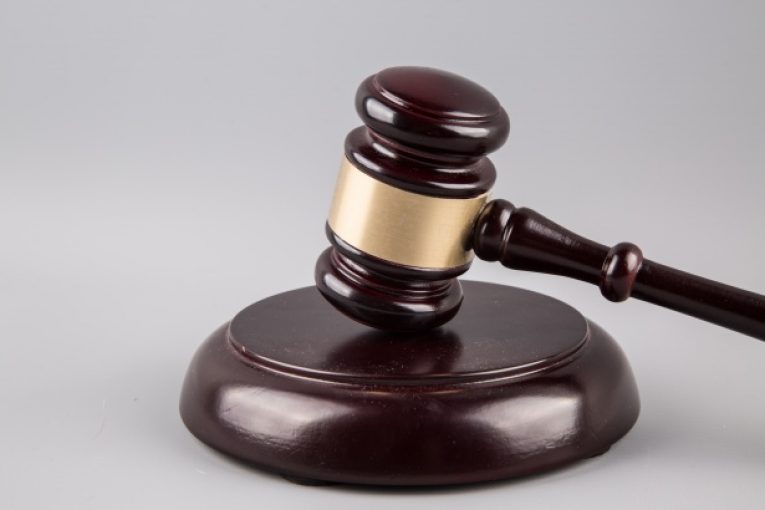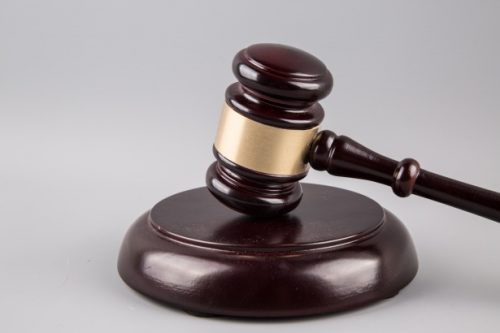

By Rajesvi Deora
WASHINGTON, D.C. – The American Civil Liberties Union (ACLU) has filed a lawsuit for two formerly incarcerated Washington D.C. residents against the U.S. Parole Commission and the Court Services and the Offender Supervision Agency for failing to accommodate people with disabilities during supervision.
According to the ACLU in its statement, the class-action lawsuit alleges the two federal agencies, the United States Parole Commission and the Court Services and Offender Supervision Agency, systematically failed to “provide accommodations to people with disabilities on supervision, as required by federal law.”
The ACLU said criminal sentences can extend for years after incarceration because of parole and supervised release. Individuals in such predicaments are required to comply with “myriad and onerous conditions,” failing to adhere to which may lead to re-incarceration, despite no new criminal conduct.
Adherence, according to the ACLU, is far more difficult for those with disabilities, coming with several hurdles, including understanding supervision conditions, physical limitations in attending meetings or fulfilling different conditions, keeping track of changes in conditions and requirements, and struggling to balance personal health and compliance with the system’s requirements.
The ACLU noted that in 2021 and 2022, the percentage of individuals with disabilities was nearly double the rate of all individuals facing violation proceedings for “technical violations” of supervision conditions.
The lawsuit alleges the two agencies have “systematically failed to assess people’s accommodation needs and to provide reasonable accommodations. The result is discrimination on the basis of disability at each stage of supervision,” according to the release.
The ACLU insists, according to the Federal Rehabilitation Act of 1973, government agencies are required to “affirmatively provide” accommodations to ensure that people with disabilities have an “equal opportunity to succeed” over the duration of their supervision.
Plaintiff, said the ACLU, is a middle-aged man who lives with mobility issues and chronic pain from third degree burns, along with depression, anxiety and Post-Traumatic Stress Disorder (PTSD). The plaintiff missed a critical surgery to treat his burns while being re-incarcerated due to a failure to comply with supervision conditions while on parole, the ACLU release notes.
The other plaintiff is a 70-year-old from Washington D.C. who was incarcerated due to missing supervision appointments after receiving medical treatment for congestive heart failure while on parole for 18 years.
“I have been hospitalized four times since October of 2023 because of my congestive heart failure. This disability makes it difficult to walk. …Because it is difficult for me to walk and get around the city, I have a hard time keeping up with these frequent supervision appointments. … Nobody…has ever asked me if my disabilities would make it hard to follow supervision rules…(or) if I need reasonable accommodations, or support, in order to follow my supervision requirements,” said one Plaintiff.
The accommodations that formerly incarcerated individuals seek are quite “straightforward,” according to the ACLU’s statement, including simple explanations of supervision conditions, transport facilitation, providing reminders of required meetings, and generalized flexibility in accordance to different individuals’ needs.
According to one plaintiff, “Simple adjustments to my conditions would make it possible for me to comply, as I would like to do, without hurting my health.”
The plaintiffs are being represented by the ACLU of D.C., Public Defender Service for the District of Columbia, and Latham & Watkins LLP.
“After being released from incarceration, people with disabilities in D.C. are expected to navigate complex rules for years or even a lifetime to maintain their freedom. Yet the federal agencies administering supervision in Washington, D.C. have no system whatsoever to assess whether people need accommodations to comply with these requirements, or to provide those accommodations,” said Allison Frankel, staff attorney with the ACLU Criminal Law Reform Project.
“This sets people with disabilities up for failure by requiring them to navigate a maze of supervision conditions that, due to their disabilities, they lack an equal opportunity to meet,” added Frankel.
The plaintiffs, according to the ACLU’s pleading, do not seek monetary compensation; they only ask the court to take action and “prohibit the defendants’ ongoing unlawful discrimination against individuals with disabilities and to affirm that such discrimination violates the Rehabilitation Act.”
The ACLU said the aim of the lawsuit is to devise reforms that ensure individuals with disabilities are given “appropriate accommodations,” providing them with an “equal opportunity” to complete their required supervisions and remain in the community.